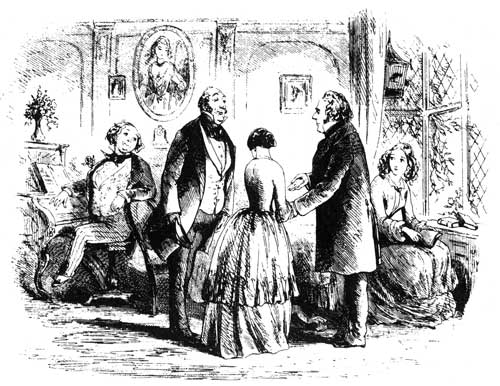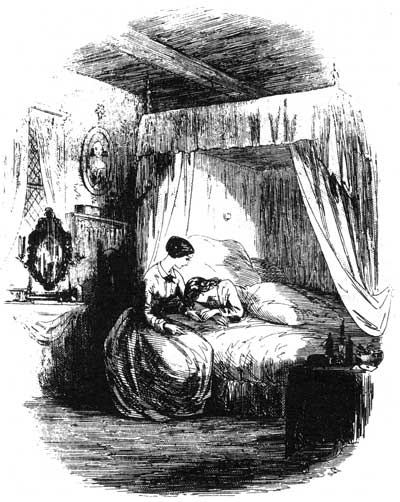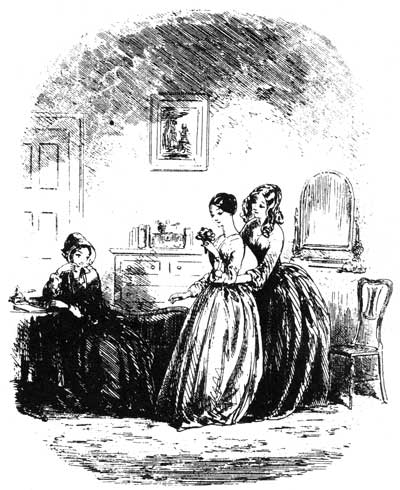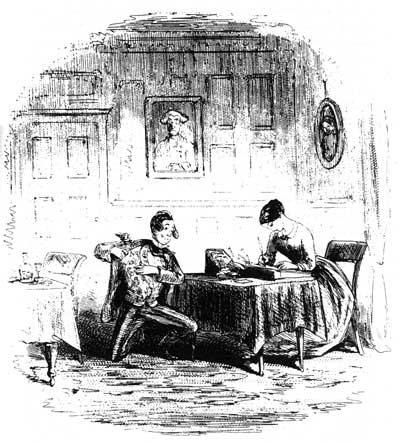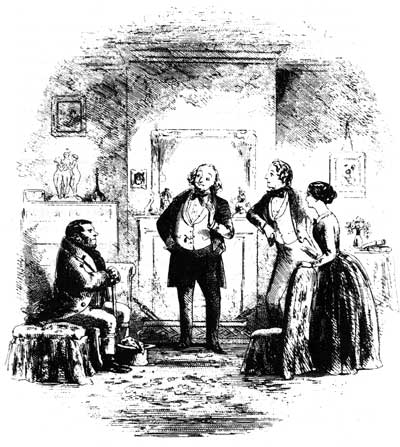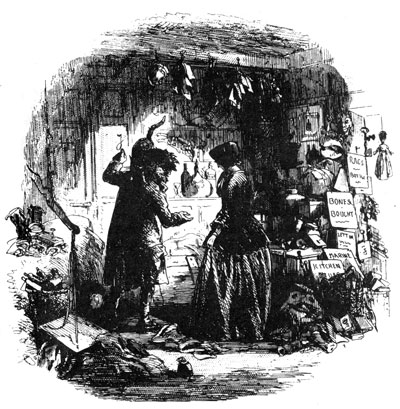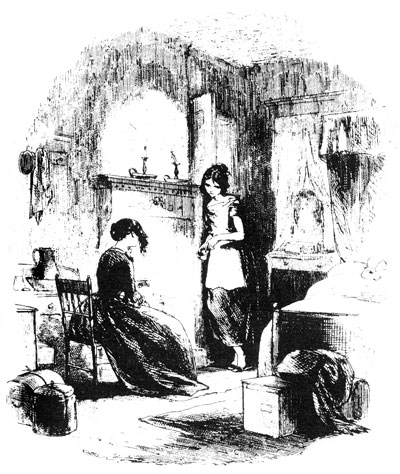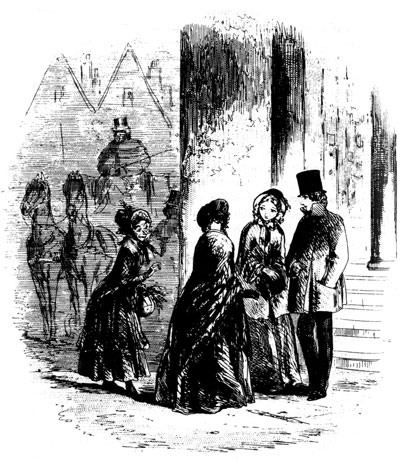I have analysed other characters; perhaps it is time for me to analyse myself!
Introducing Esther.
My name is Esther Summerson. I am one of the two narrators of Bleak House. I am an orphan, brought up at first by my dutiful Aunt Barbary, then living as a teacher-pupil in a small school. At the start of the novel, I am employed by Mr John Jarndyce as a housekeeper-companion for his young wards, Ada Clare and Richard Carstone. During the events of Bleak House, I live at Bleak House, with Ada, Mr Jarndyce, and later, Charley Neckett, who is employed as my very own maid. My story is but one part of the novel: it is the part concerned with the mystery of my birth, the mystery of my mother’s and father’s identity.
To say that Esther already knows the story of her past and repeats it discursively in her narrative, while accurate, does not give a complete picture of her role as narrator. There are things about her past that Esther knows but does not understand; there are things she is unaware that she knows and that she is therefore incapable of telling; and there are things that she knows but does not want to know. John O. Jordan: Supposing Bleak House. Charlottesville and London: University of Virginia Press, 2010.
But I would not have you think that I am the sole focus of the novel! Indeed, I am very concerned by the disintegration of Richard’s character and expectations during the grinding progress of the Jarndyce v. Jarndyce lawsuit. And I do my best to observe and recount the complicated plots and subplots that come within the sphere of my observation!
At the time Mr Dickens is composing Bleak House, the ‘governess’ novel is increasingly popular. I believe my narrative is partly inspired by the success of first-person novels by and about women, such as Miss Charlotte Brontë’s Jane Eyre. I am very grateful to be employed by Mr Jarndyce, and grateful too that my narrative is considerably less sensational and turbulent than that of Miss Eyre! I also strongly suspect (though I blush to mention it) that Mr Dickens depicts me as what the Victorians called the ‘angel in the house,’ an ideal version of domesticated womanhood who contrasts with the many other foolish or tragic women in the novel.
5 things you need to know about Esther
- Housekeeper at Bleak House
- Carries a basket of keys
- Though motherless, bears a mysterious resemblance to Lady Honoria Dedlock
- Loved by all who meet her
- Proposed to by Mr Gubby, Mr Jarndyce, and Mr Woodcourt

Describing Esther.
My name is Esther Summerson. I was born some twenty years before the events of Bleak House. My first name means star; my last name means summer. I am not sure what that means! At the opening of Bleak House, I am twenty, employed by Mr John Jarndyce as a housekeeper and companion to his young ward, Ada Clare. Others think me pretty; I never think of such things, and when I am scarred by the smallpox, I put any such thoughts as far from myself as possible.
Where is Dickens in all this? Does Bleak House contain any reflections, ghostly or otherwise, of its author? In addition to exercising extraordinary craft in the creation of its female first-person narrator, does Dickens enter in any way into the fictional world of his novel? John O. Jordan: Supposing Bleak House. Charlottesville and London: University of Virginia Press, 2010. (87)
I am not sure why Mr Dickens chooses me to narrate part of his novel. I suspect it is because he needed a contrast with the strongly satirical voice he employs for his narrative. As a nice, young, middle-class woman, I offer an accessible voice for his many readers to listen to. (Though I am not particular nice in social terms—I am illegitimate, born out of wedlock, which makes me beyond the pale for polite society!)
I am one of a remarkable number of orphans or family-less characters in Bleak House, and it is my great fortune that I am able to form a family of a kind with Mr Jarndyce, Ada, and Richard. And my even greater good fortune that I attract the attention of the kind and charitable (and not unattractive) Dr Alan Woodcourt.
My story is therefore a conventional one of a quest for identity (though I do not actively seek to find out, I discover who my mother and father are), and for social acceptance (I begin the novel almost alone, and conclude it happily married and surrounded by friends.) To read my story, you would think that Bleak House is a happy novel!
Esther Summerson as a type of character, and representing specific issues.
You would also think I am a sympathetic character. It is quite disconcerting to me to read that critics and reviewers find me irritating, idealised, uncomplicated, and uninteresting. But I think that it is my purpose to be that way, to contrast with the dark and complicated stories that surround me!
I have indicated that I think I am Mr Dickens’s attempt at writing a governess novel—a novel written by an educated but impecunious young woman. I also suspect I am a type of Angel in the House, of a kind made famous not much later by the poet, Mr Coventry Patmore. Some scholars say that I am based on Mr Dickens’s sister, Georgiana Howarth, who kept house for him, his wife, and their ever-expanding brood of children. (Although I cannot comment on the accuracy of that, I do note that Mr Dickens is not averse to putting real people in his books (Mr Skimpole, for instance, is based on the Romantic writer, Leigh Hunt, a man who relied a great deal on his charm, and on the support of his friends).
Certainly, I espouse a type of femininity that Mr Dickens values in his novels: the competent young woman who runs a household smoothly, and who values the feelings of those who come under her care. There are not very many women in Bleak House who do that—Miss Caddy Jellyby learns to do so, as does Charley Neckett, and I am delighted to count them among my friends. We contrast with types of women who neglect the welfare of those they live with for the sake of their own peculiar obsessions, or career aspirations.
Mr Dickens is not fond of women who look to careers rather than supporting their families. (Though I myself think that there must be a way to balance aspirations in domestic and public spheres!)
Esther’s Role in the Novel.
Part of Esther’s goal in writing is to understand not the facts of her life but their meaning. John O. Jordan: Supposing Bleak House. Charlottesville and London: University of Virginia Press, 2010. (5)
My role in the novel, then, is as narrator, as a carer of other characters. Perhaps symbolically, I operate as a figure of innocence, around which the dirt and disease and drama of the novel rotates. While others are relentless detectives, I am a reluctant detective where it comes to discovering my own identity. I may seem passive, but that is part of the construction of my character as a recipient, rather than a seeker, of knowledge.
My happy ending, then, represents a resolution of sorts. It offers some hope for the future–the hope of the middle classes, perhaps (as the aristocracy offers little hope).
